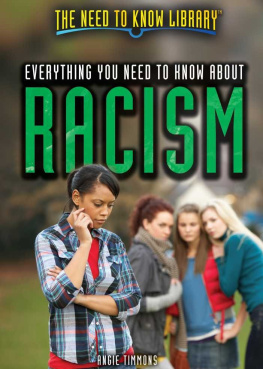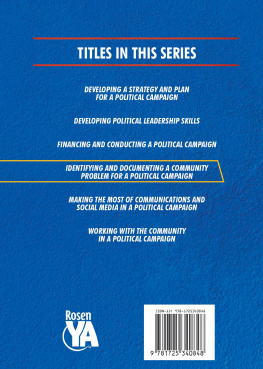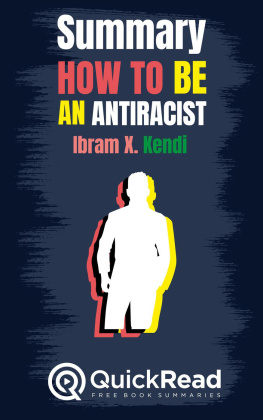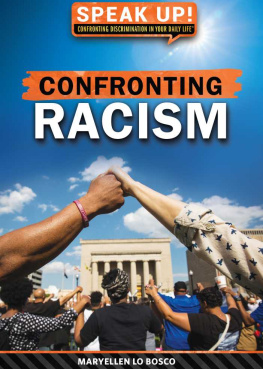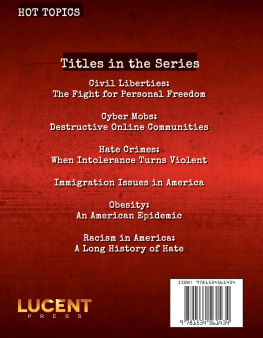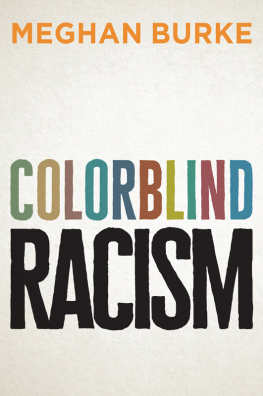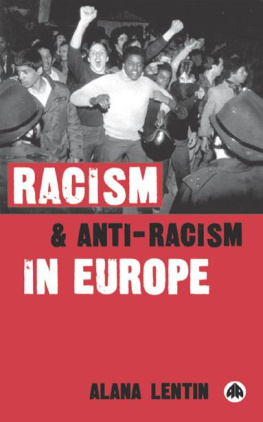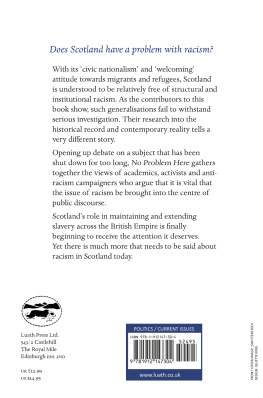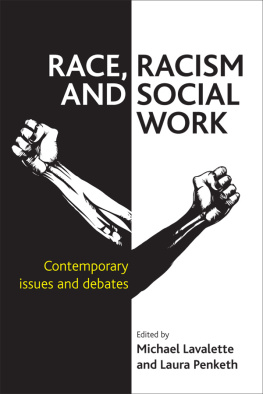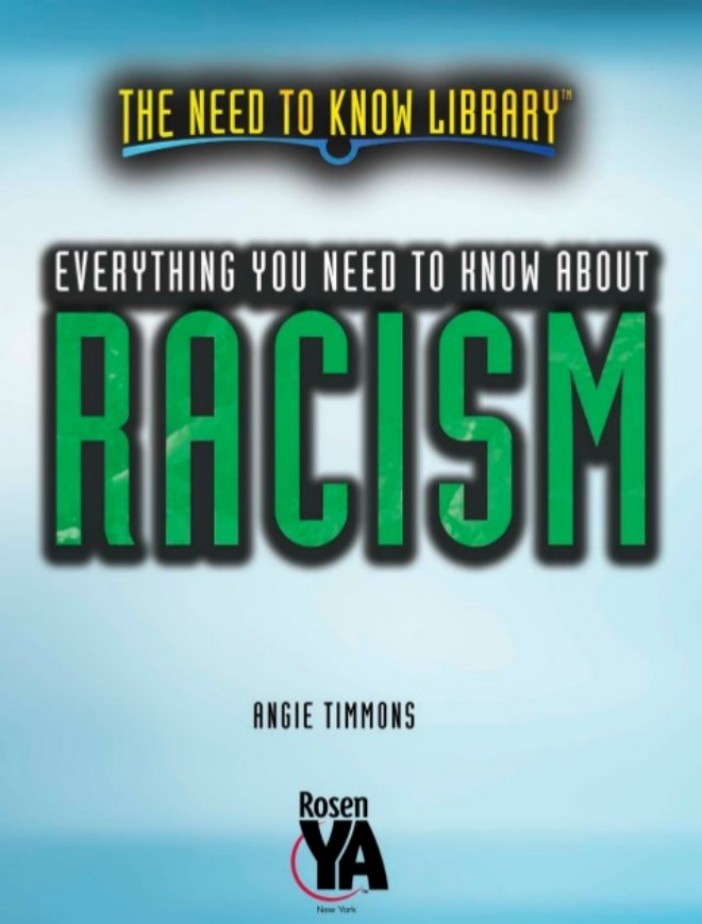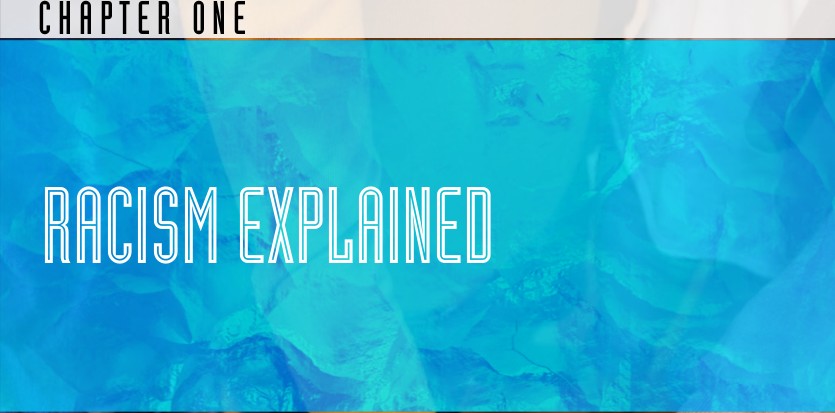Published in 2018 by The Rosen Publishing Group, Inc.
29 East 21st Street, New York, NY 10010
Copyright 2018 by The Rosen Publishing Group, Inc.
First Edition
All rights reserved. No part of this book may be reproduced in any form without permission in writing from the publisher, except by a reviewer.
Library of Congress Cataloging-in-Publication Data
Names: Timmons, Angie, author.
Title: Everything you need to know about racism / Angie Timmons. Description: New York : Rosen Publishing, 2018. | Series: The need to know library | Includes bibliographical references and index. I Audience: Grades 7-12. Identifiers: LCCN 2017019695I ISBN 9781508176763 (library bound) I ISBN 9781508176756 (pbk.) I ISBN 9781508176787 (6 pack) Subjects: LCSH: RacismHistoryJuvenile literature. I Race relationsHistoryJuvenile literature.Classification: LCC HT1507 .T56 2018 I DDC 305.8009dc23 LC record available at https://lccn.loc.gov/2017019695
Manufactured in the United States of America
CHAPTER ONE
CHAPTER TWO
CHAPTER THREE
CHAPTER FOUR
CHAPTER FIVE
CHAPTER SIX
O n the evening of June 17, 2015, twelve members of the Emanuel African Methodist Episcopal Church bible study group welcomed a newcomer, twenty-one-year-old Dylann Roof. The groupall Methodist African Americans at the historically black church in Charleston, South Carolinadid not care that Roof was white; the church welcomes all. Roof sat next to Clementa C. Pinckney, the pastor and a South Carolina state senator.
After listening for an hour and joining in a closing prayer, Roof stood up and began shooting.
He killed eight people within six minutes, shouting racial epithets as he fired.
A ninth victim later died at a hospital.
Only two women and a five-year-old girl survived the massacre of what the media soon began calling the Charleston Nine.
Roof was arrested in North Carolina the following morning. He faced multiple charges and life sentences in prison. In statements, he made one thing clear: he wanted to start a race war with the church shooting. The church founded in 1816, central to the history of American slaves and civil rights, and in the heart of the old Confederacy was a perfectly symbolic place to incite such a conflict.
The historically black Emanuel African Methodist Episcopal Church in Charleston, South Carolina, is where a self-proclaimed white supremacist murdered nine black people in 2015.
Roofs attack happened at a time when race relations in the United States were already suffering, mostly owing to high-profile instances of police brutality toward African Americans. In 2012, a neighborhood watch member named George Zimmerman was acquitted after fatally shooting an unarmed black teenager named Trayvon Martin in Florida. After his acquittal, the Black Lives Matter movement arose, aimed at stopping violence toward black people. The movement gained momentum and support, but unrest between law enforcement and African Americans didnt stop. In April 2015, a twenty-five-year-old black man in Baltimore, Freddie Gray, sustained injuries during an arrest that led to his death. Only one police officer faced charges for the incident. Those charges were dropped, and none of the other officers involved faced charges. Baltimore erupted in protest.
In his manifesto, Roof cited the Martin-Zimmerman incident as a turning point in his life. Angered by public outcry over these incidents, Roof became a white supremacist as he grew from teenager to adult. He radicalized his beliefs online, where he found others with extreme views on race relations.
The internet has given modern-day racists an avenue to pursue their dangerous beliefs by associating with like-minded individuals online. The rise of alternative media sites run by far-right, radical thinkers gives racists validation for their beliefs. Emboldened by these factors, hate groups have blossomed throughout the last few decades.
Despite the prevalence of racism and the new social delivery systems racists have to spread their message, not all is lost. By understanding racism and what drives it, people of all races can combat the problem by identifying and removing racism from private and public institutionssuch as churches, governing bodies, and schools and their communities. Education about other races can drive integration and celebrate diversity.
As global citizens, informed and compassionate dialogue between diverse individuals and groups must happen; otherwise, unnecessary tragedies will continue to happen.
M ore than 150 years after the Civil War, how can relations between white people and black people still be so strained? The answer is complex. Racism in America has been addressed for many decades, spanning many generations. Civil disobedience, legal battles, and even violent conflicts such as the Civil War and some instances during the civil rights movements of the 1960s bookmark a turbulent history of race in this country. Though our society has progressed past the days of slavery and segregation, race relations obviously still need some work.
In this fast-paced and often turbulent world, defining racism is the first step in identifying and combating bias and prejudice based on a persons skin color or ethnicity.
RACISM: AN EXCUSE FOR OPPRESSION
In its most basic definition, racism is any attitude or behavior that demonstrates the idea of superiority based solely on race. Racism is often accompanied by prejudicial or discriminatory practices based on racial superiority. Though experts like anthropologists and biologists have found no evidence that any race is superior to others, skin color and ethnicity have long been at the heart of conflicts almost as old as humankind. For thousands of years, racism has been used as an excuse to oppress, enslave, and, in extreme cases, exterminate entire groups of people based solely on their skin color or ethnicity.
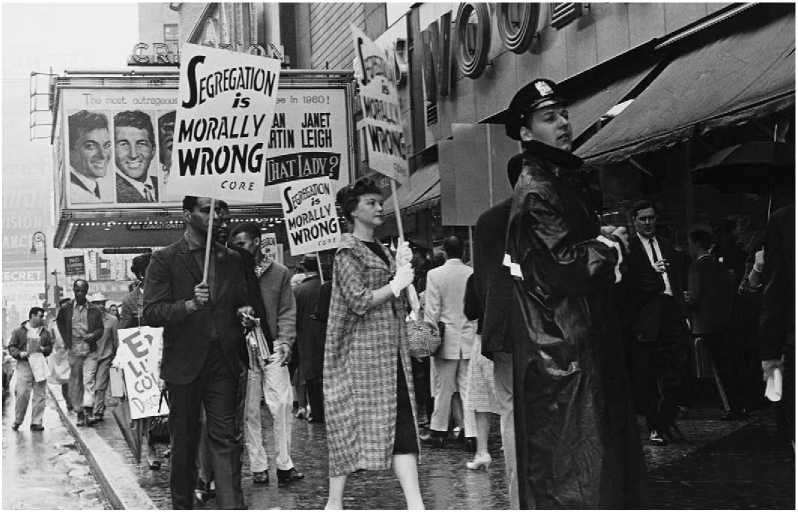
Marchers protest segregation in Southern stores outside the F. W. Woolworth store in New York City in April 1960.
Documented accounts of racist statements and activities began with European colonization in the 1600s. European countries with predominantly white populations launched exploration and colonization efforts in places like the New World (the Americas), Asia, and Africa. European explorers and colonists forced natives to submit. In many cases, this involved enslavement or forced removal of natives from their ancestral homelands, as was the case for many Native American tribes in the United States.

